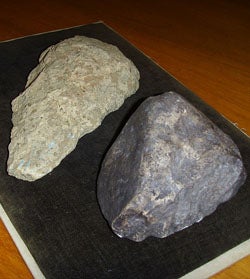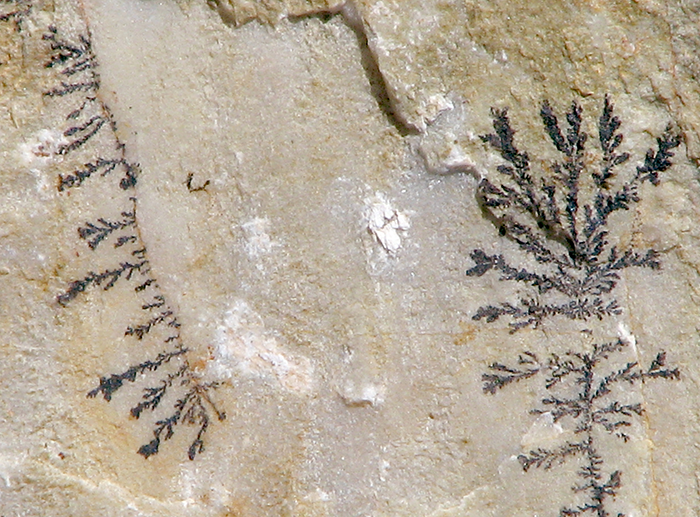
Cutting edges to food processors
A leopard on the hunt uses her razor sharp teeth and claws to make a kill. A cobra uses its lightning speed and fangs to inject venom into its victims. And humans…well, we don’t have fangs or claws to get food. We have small teeth instead of sharp canines. We have fingernails instead of claws. Our stomachs are small and unable to digest most plants without cooking them first. But what humans do have is technology, and we’ve used that for a long time to get our meals.

Some archaeologists think the first stone tools that were ever used have yet to be found. These tools were unmodified rocks, some used for crushing or pounding. For instance, bones found in the Ethiopian desert at a place called Dikika have marks that look like they had been butchered. But the bones are older than the oldest stone tools! Hominins may have picked up rocks with naturally broken edges and used them to cut meat off of scavenged animals. This would be similar to walking down a road and finding a broken bottle to cut up roadkill. Though that may seem a bit gross, it makes an important point. The use of simple, found objects is what helped some of our earliest ancestors to survive.
Be Part of
Ask An Anthropologist
By volunteering, or simply sending us feedback on the site. Scientists, teachers, writers, illustrators, and translators are all important to the program. If you are interested in helping with the website we have a volunteers page to get the process started.

